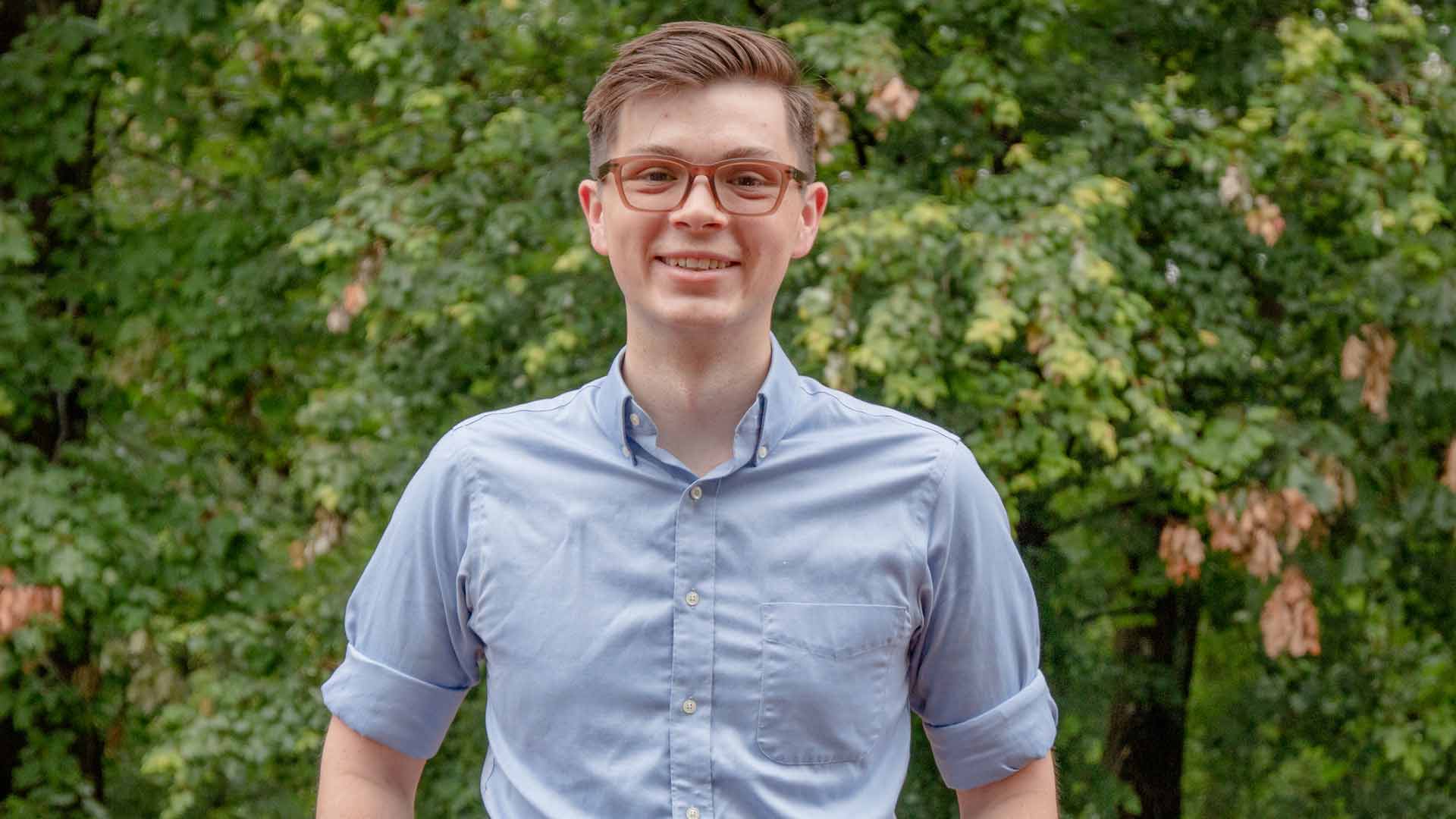Finding the Equity and Empathy Within Data

Jason Fowler, BA Psychology and Theatre Studies, MSBA ’21
Coordinator for departmental event advising, UMBC
Your career journey/your current role
I really thought I wanted to go into clinical psychology or another handson therapeutic industry, but when I started grad coursework I realized that what drew me to psychology was statistics. I stepped into a career at UMBC where as part of my work I’ve done a lot of analysis informing business decisions and data integrity projects.
Career aspirations
I am thinking of healthcare or nonprofit analytics, and I'm intrigued by operations research analytics. I’ll be doing a healthcare specialization class next semester.
Why did you choose the Smith Online MSBA?
When I was researching grad schools, I really liked the idea of a business analytics or data science program. I also knew I wanted to be able to work full time in person and study virtually. I really wanted to knock out grad school and make that career shift as soon as I could. The duration was perfect, being a 20 month program.
Non quant person coming into a quant program
At first it felt like I was learning from a firehose, grappling with all these concepts and terms I had never heard before. My saving grace was really the faculty, because every time I got tripped up or lost my way someone would be just an email or zoom meeting away. The pre work that we did, and the resources we were provided, were really helpful for me.
What did you learn that was most helpful?
The most helpful takeaway I had is Professor Suresh Acharya’s statement “equity within data.” or empathy through data. It’s this ability to tell stories that drive equitable decision making based on quantitative research and data, understanding how statistics works at its core in tandem with technology, and how to leverage that in equitable manners. In Professor Waguespack’s class we had explicit discussions about cognitive biases, research biases, and how to avoid those using more equitable sampling methods.
When we were first planning our vaccine clinics on the UMBC campus, we had limited information about things like potential locations or how much vaccine would be available. I got frustrated with the what ifs we were discussing, like how many people per hour would you expect, what’s the distribution of when they’re going to arrive, how long does it take for a shot to be administered. I made my own Monte Carlo simulator to simulate out when people might arrive, how that would affect capacity, how long people would have to wait to be vaccinated, how many seats we would have, and then I took that simulation back to the planning group to recommend room size, how many seats we needed, how many hours a day the clinic should be open.
Thankfully it wasn’t needed, but it was one of those confidence-boosting moments.
Connection with classmates
I really appreciated the diversity within the program, especially the diversity of backgrounds. There were people who had worked as business analysts for 10 plus years and wanted to get to the next step in their career,and folks like me without any business analytics background. The biggest help in forming connections with my classmates were the semester-long group projects.
What had the most impact for you?
The career resources we have access to have been tremendously helpful. I’m in the early process of my search for my next step and the meetings I've had with OCS have been so helpful, approachable and easy to use. They have really good insight.
If you could do the program again what would you do differently?
Don’t be afraid to make mistakes and ask questions. That’s the number one thing I'd do over if I had a shot, ask more questions or attend more office hours.